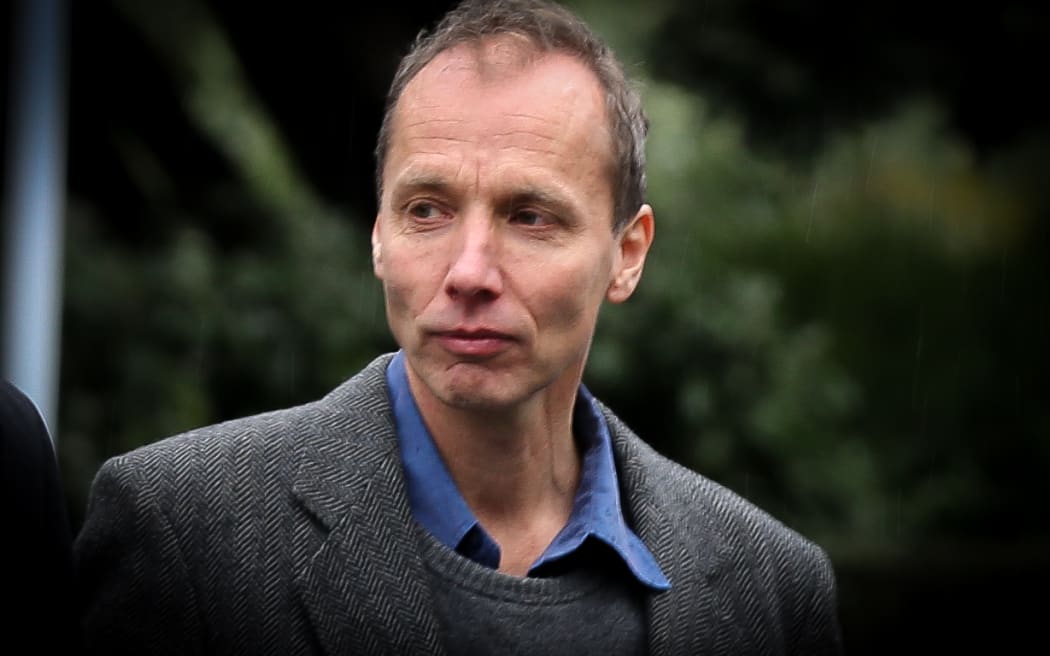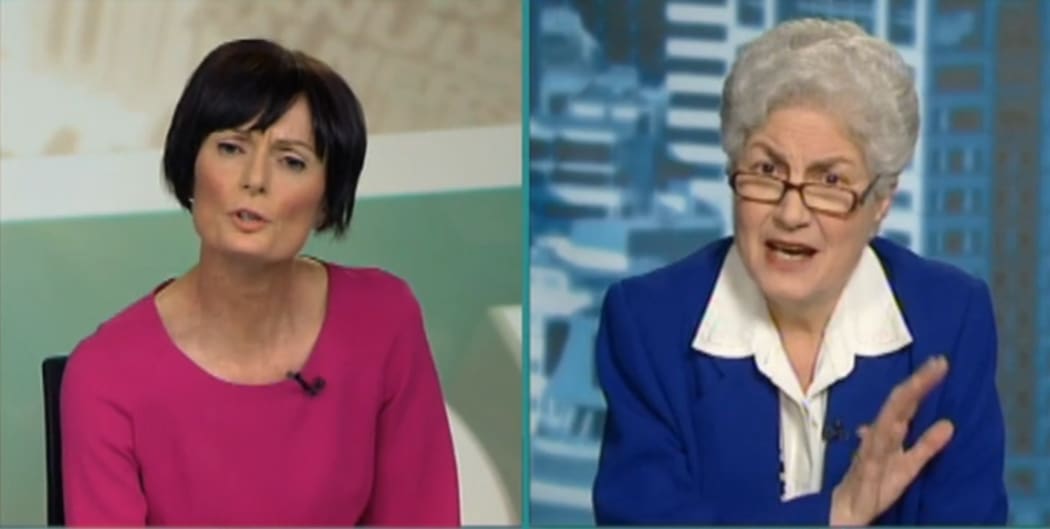Do ministers use stalling tactics to delay Official Information Act (OIA) requests or are the media using the Act to justify fishing expeditions? As the ombudsman prepares to sift through feedback on OIA compliance, Mediawatch looks at the issues.

Nicky Hager is 'sick of' the OIA Photo: RNZ / Alexander Robertson
Journalist Nicky Hager was back in the headlines last month when it was revealed the police had obtained his banking records ahead of a controversial raid on his house three years ago. It was part of the hunt for the hacker known as Rawshark, who provided the emails and social media data of Whale Oil blogger Cameron Slater to Hager for his explosive book Dirty Politics.
Legal experts have since debated whether Westpac broke the law as set out in the Privacy Act. Even some of Hager’s fiercest critics took his side. On Newstalk ZB, a worked-up Leighton Smith said it was an attack on a right to privacy which should never be surrendered, while on Twitter, right-wing pundit Matthew Hooton said it was an outrage:
It will be deeply ironic when Nicky Hager sues @Westpac @WestpacNZ for breach of privacy but I still hope he does, & wins & gets big damages
— Matthew Hooton (@MatthewHootonNZ) October 23, 2015
Ironically, Dirty Politics revealed that Hooton once gave Hager’s private address to a blogger who said she had clients in China who might want to harm Hager.
While the so-called 'Hager Data Saga' has sparked debate about the right of journalists to keep information private, it also shed light on the problems they have in making official information public.
Hager discovered Westpac had handed over 10 months' worth of his banking data without a court order because the details were disclosed to his lawyers when he challenged the legality of the 2012 raid in court. In a statement last week, lawyer Felix Geiringer said Hager himself had requested the documents relating to Westpac under The Privacy Act and The Official Information Act (OIA). The police would not provide them so he complained to the Privacy Commission and the Office of the Ombudsman.
It’s far from the first time Hager has experienced frustration with the OIA. Last month, he told the Auckland University of Technology's student newspaper Te Waha Nui he has used the Act more than 1000 times. Often he receives what he asked for within the 20 working days the Act stipulates it should take, but he said the OIA is "basically useless" for really important issues.
In principle it's fantastic. In practice I’m sick of it. If someone in power wants to evade it, it’s frustratingly easy
- Nicky Hager in Te Waha Nui
Dirty Politics revealed Slater was guided to make OIA requests for information that would embarrass the Opposition. Subsequently, the New Zealand Herald uncovered a case of the Ministry of Justice releasing information to Slater under the OIA within one hour of his request.
Prime Minister John Key also admitted his ministers sometimes withheld information if it was in their interests. In an interview with TV3 last month, the Chief Ombudsman Dame Beverley Wakem said that was "cavalier" and the Prime Minister had shown “a disregard for the law”. These apparent abuses of the Act - and others - prompted Dame Beverley to launch a review of compliance in December 2014.

Lisa Owen quizzes Dame Beverley Wakem on The Nation Photo: screenshot
TV3’s The Nation gave the Chief Ombudsman another example. Eugene Bingham, a producer from TV3's current affairs show 3D, complained a request for information about police crime statistics was stalled for two years. A police job sheet later revealed the then deputy commissioner Mike Bush had issued an instruction “not to respond to the Official Information Act request”. TV3 told Dame Beverley that Bingham’s unresolved complaint has been with her office for more than a year.
Days later, Dame Beverley called for users of the OIA - including journalists - to take part in her review of compliance. Submitters have until until midnight on Thursday 5 November to complete the online survey.

David Fisher Photo: RNZ/Jeremy Rose
Airing grievances
Some journalists have been vocal about their frustrations with the OIA. In a speech to public officials in 2014, New Zealand Herald senior reporter David Fisher said public servants now block requests "for as long as they can and delete as much as they can" before releasing information.
In the 25 years I have worked as a journalist, there have never been so many questions, or such a loss of faith, all at once.
Journalists often share their frustrations about the OIA requests on social media, such as this post from New Zealand Herald education reporter Kirsty Johnston:
Quality OIA response here pic.twitter.com/VkCkm2zvpk
— Kirsty Johnston (@kirsty_johnston) August 14, 2015
But on TV3's The Nation, Dame Beverley said journalists don't always observe the spirit of the Act either.
"Often the media will go on a fishing expedition and they’ll ask for a request that’s yay miles wide. There’s no use asking for 30,000 documents, or everything that walked, flew and ran for the last year," she said.
Between a rock and a hard place
Megan Hunt, Fairfax Media reporter in Hawkes Bay, studied the working of the OIA after some first-hand frustration.

Megan Hunt speaking at the Centre for Investigative Journalism Photo: Jeremy Rose
I received leaked information about a major infrastructure project which suggested some of the data used to justify [it] was flawed. Despite sending numerous requests to verify the information, I was stalled. First with time delays, then denials the documents existed, and finally fees for the information which stretched into thousands of dollars. Every Kiwi newsroom is full of similar stories.
- Megan Hunt in 'The OIA: A Help or Hindrance to the Voice of Kiwi Journalists?'
"One thing that's been brought to my attention is pressure trickling down from ministers' offices until it reaches the people who handle the requests for information," Hunt told Mediawatch. "They are under pressure not to release anything damaging, but also from the journalists demanding the information. They are between a rock and a hard place".
Under the "no surprises" convention, officials are expected to warn ministers of any release of information which could be newsworthy.
"In pretty much all the departments I talked to, everything that is going to be released after an OIA request is run past the minister's office. That can make them risk-averse. But officials I spoke to also said journalists submit a lot of broad requests and they often feel like (journalists) are using them to do their research".

